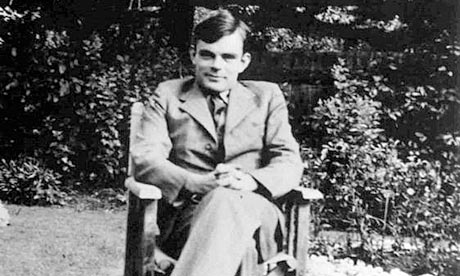Turing's academic career was the stuff which normally earns knighthoods and honorary degrees, from decoding work at Bletchley Park during the Second World War to his celebrated period in the computing laboratory at Manchester University from 1948, leading a team which set the pace for computer development for the next three decades.
Although his genius was recognised in his lifetime, with fellowship of the Royal Society and an OBE, his conviction lost him his security clearance and ruined his career. Always something of an outsider, he had been given a report as a teenager at Sherborne school which warned that his public school education would be wasted if he insisted on being purely a 'scientific specialist.'
Next year sees the centenary of his birth and has been designated Alan Turing Year, with an international programme organised by a committee of scientists and others chaired by Prof Barry Cooper of the School of Mathematics at the Leeds University.

No comments:
Post a Comment